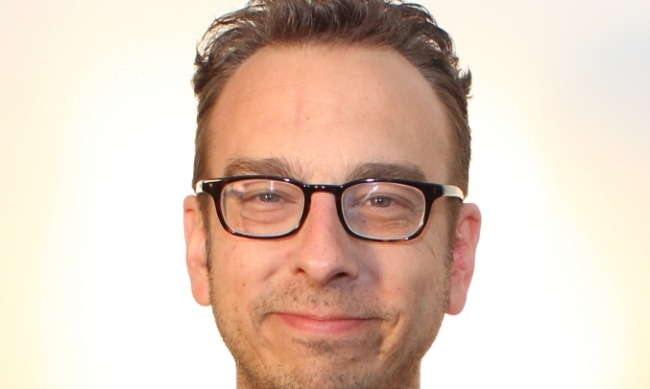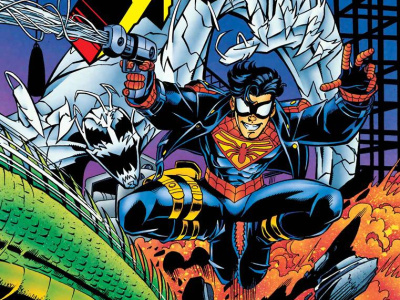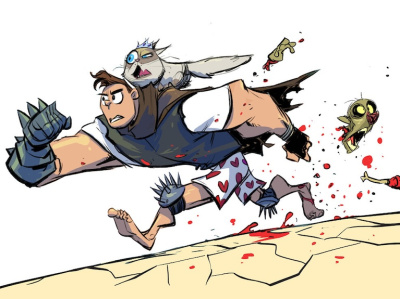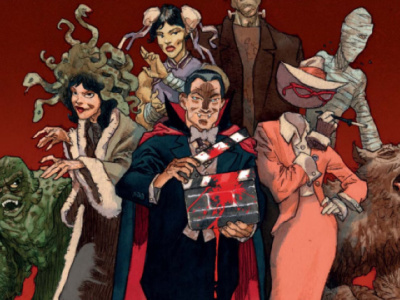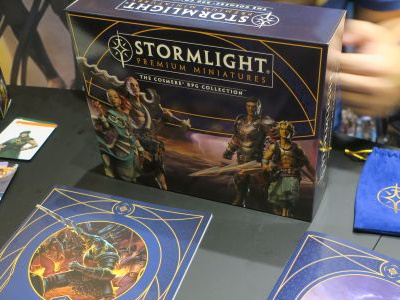We talked to Global Head of ReedPOP Lance Fensterman last week about a number of topics, including New York Comic Con, ReedPOP’s growing scale, the future of shows, and more. We separately published our discussion of ReedPOP’s new tabletop game show, which launched last weekend (see “Global Head of ReedPOP Lance Fensterman on Pax Unplugged”).
ICv2: Let's talk a little bit about New York Comic Con. The attendance was around 200,000, is that right?
Lance Fensterman: Yeah, 220,000 and change in terms of tickets sold, yes.
What does that mean now, tickets sold? You've changed how you're reporting, haven't you, over the last few years?
No, no, no, never changed it. In the old days when we had multi‑day tickets, if you bought a three‑day pass, that counted as one ticket sold. The difference is we don't have multi‑day tickets so it's single, individual tickets sold. It was always that one ticket is counted as one whether it's a three‑day, a four‑day, or a single‑day. It's one ticket. The increase is really because we don't have multi‑day tickets anymore so you have single days. We've always counted the same the entire time.
The change this year is that now there's more people buying maybe two or three single‑day tickets instead of a four‑day?
Potentially, right. We could technically, I suppose, go in and attempt to say if one person bought five tickets, but how do I know that those aren't for four friends? It just becomes silly, you know what I mean? It's a big show.
Is that more tickets than 2016?
Yes, but it was really the same number. In fact, it was slightly less people per day, but because again, there were no multi‑day passes, it resulted in more unique people total because it wasn't one person going four days. It was instead four individual tickets sold. This was the first year of no multi‑day passes.
Fewer people per day, and that's because you had less space at the Javits due to the construction?
Correct. That's the same reason we went to the single‑day only; there's such demand for the tickets. We wanted to have less people in the building at a given time, but yet allow more people to be able to attend the show. Therefore, the single‑day ticket was really the only option to be able to accomplish everything we wanted to accomplish.
The Javits is renovating again. When's that going to be done, what will that do to the available space?
We're assured by 2078, all will be done.
[Laughs]
I don't know. I think it's three years, four more years roughly that they're expanding to the north. We've already lost, obviously, that North Pavilion space where Artist Alley was. We'll eventually have more space, but in the meantime, we're coming up short.
Simultaneously, the whole Hudson Yards area is really starting to come online around the building so we'll have a new hotel in two years with lots of ballroom space. Next year, we'll have a new art center stage performance space. A couple of different venues will come online.
There's a lot of change happening on that whole neighborhood, which is great. In the long run, it's going to be really wonderful for the fans.
It seemed like the building was constantly at about a maximum level of capacity. Do you feel like you had a good number for what the building could handle?
Yeah. It's funny. Sunday was actually when it was the busiest. Saturday, actually, felt really good. I walked around with my one‑year‑old daughter, and it was easy to navigate within the context of what it is. Sunday got to be pretty chaotic.
The morning wasn't bad, but the afternoon was busy.
I don't mean like a terrible situation, but it was just a little too busy. Again, what's tricky about that is technically it was the same number of people each day. We didn't have the same offsite programming on Sunday that we did on Saturday so you had more people in the building, or they weren't spread out as much.
When you think about it, Madison Square Garden Theater, we can easily can put 6,000 people in that. Hammerstein Ballroom, we can put 3,500 in there. Then you have people in transit all the time in between. Any given time, you could have 12, 13 thousand people outside the building at other venues. If you don't have that same draw, or the content isn't as strong, or it's not as much going on, that means more people in the actual Javits Center.
Anything else new coming up in terms of changes for New York Comic Con?
We'll continue to expand. We'll keep moving out into additional venues around the city. Nothing concrete on that yet, but I think we'll add at least one more big venue outside of the building to be able to add more content, more programming, more fun stuff to do, and be able to spread people out a little bit more.
We just felt like it was one of the smoothest events we've run logistically and from a security standpoint. We were really proud of that.
Then expanding out a little bit, you obviously just did a big acquisition in the UK (see “ReedPOP Acquires UK’s Top Event Group MCM”). How many shows are you doing a year?
It's 40, 40 now a year.
What does that kind of scale bring in terms of what an attendee at an individual show or an exhibitor at an individual show might experience?
It allows us to innovate a bit more in that you're able to try things out. If you think about it, this is a little technical, but if you have a product that only happens once a year, then you can only offer an improvement once a year. If you're doing a couple of shows a month, it means we're able to try and experiment with things, and innovate, and improve throughout a year so that any given show is a place where we're trying something new, a new piece of content, a new piece of technology that we're able to hone and improve and then apply elsewhere, which is cool.
The other thing the scale offers us, ideally, is the ability to attract better content, bigger brands, and engage them in a bigger way to do more sophisticated things at our events and do cool stuff for our fans.
For the exhibitors, it offers the ability to influence communities of fans in markets all over the world depending on what you're trying to accomplish and what market you're trying to serve. It's exciting. It's been fun to build this.
When we talked last year (see “ICv2 Interview: ReedPOP SVP Lance Fensterman”), you made the comment that you thought in the States, the market was starting to get saturated. What's your feeling now, a year later, about the opportunities here for additional shows?
There's a few markets, very few, that are underserved. We, obviously, launched a show in Philadelphia because we think it's a great comic community that maybe isn't well served currently with a great event so we're going to invest there (see “Con Comings and Goings”). There aren't a lot that are left.
We're starting to see some questions about the more personality‑based business model if it's effective and over the long term can be profitable.
Celebrity‑based?
Celebrity, yeah, the more autograph‑focused shows, if those are a sustainable business model. You just published an article about Wizard's results and how they're doing (see “Another Big Loss for Wizard World”). There's a strong fan appetite, but we're going to start to see fewer, better‑run shows that will be left standing in the end of all this.
One of the trends that's been slowly growing has been where IP owners run their own shows. You guys obviously run Star Wars Celebration. Disney's got D23. In the last year, we saw the launch of HasCon, which they've announced now is going to be at least every two years. What are your thoughts on that model and its possible impact on the business overall?
It's really smart for brands to do that. There's a limited number of brands that have the kind of size, scale, following to do that content effectively. I don't think it's an overt threat to pop‑culture events, but I think that it is smart for the brands that have the ability to do it to do it.
Direct-to-consumer and engaging fan community is an ongoing trend, and it's smart for some of these brands to be looking at it and talking to their fans that way.
One of the things that's percolating in the Comic Con business is litigation over the name. Do you have any comment on the ongoing dispute between San Diego and Salt Lake about the name Comic Con (see “Salt Lake Comic Con Appeals, Wins on Gag Order”)?
I don't, nothing I can comment on. We've been pretty careful about how we handle IP, and we have gotten very good and consistent legal advice on it. We feel confident about our position, but no, that's really between those two parties.
Anything else going on in the show business that you want our readers to know about?
We're still incredibly passionate about finding fan communities anywhere in the world and building shows for them. I'm going to sound cheesy here, but I mean it.
This country in particular has become divisive. There's a lot of lines being drawn, and violence, and lots of crazy stuff. It's a point of pride that at ReedPOP, we build events that are fun for people and that are about people coming together and celebrating things that they love.
More than ever, I'm proud to be in this business and do what we do, because I think it's needed, and it's so cool to see it happening all over the world. That commonality of fandom, I think, is a wonderful thing. Maybe that's, again, a little bit of a cheesy thought, but it's true. We're honored to be able to do this for a living.



